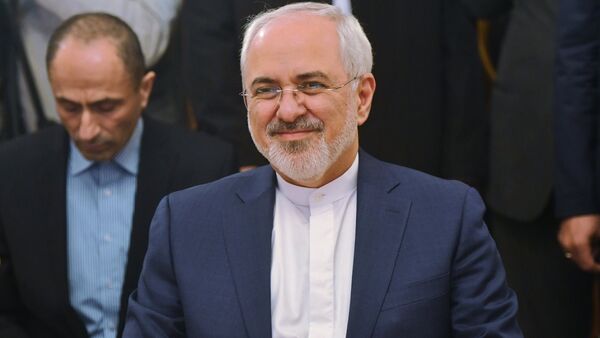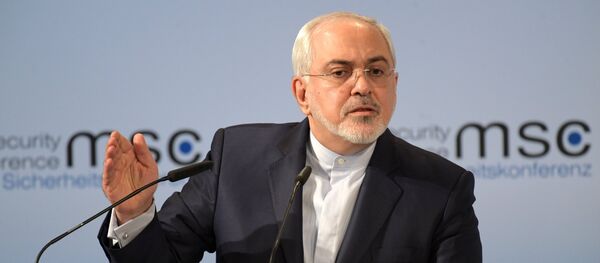Sputnik: Mr. Zarif, you said at the Munich Security Conference (MSC) that Iran would respond to any violation of the JCPOA. Could you comment on the current situation around the agreement? Will European signatories join the US in an effort to break up the deal?
Mohammad Javad Zarif: The international community, except the Trump administration, Israel and two or three Middle Eastern countries, understands that the JCPOA is an international agreement and not a bilateral treaty between Iran and the US. International agreements can't be altered unilaterally by one signatory. If such an action becomes a generally accepted norm, it will become hard to conclude any agreements. Countries that signed an agreement with the US would think of altering it after the change by the US government.
Thus, the situation, regarding the JCPOA goes beyond the agreement itself as it touches upon the international order. An international agreement will never be concluded if a country, even if it's a superpower, can neglect its liabilities and break the deal.
We regard this as a ground-breaking principle, but we should see how the European countries resist the US approach to the deal. They confirm that they will use all available efforts to preserve the agreement. Even during public speeches, European politicians say that, firstly, they won't agree on any revision of the deal; secondly, they stand for preserving their own interests and agreements within the JCPOA. We should see, to what extent they will show their political will.
Sputnik: The Iranian authorities have said that the country has a plan for a possible US unilateral withdrawal from the deal. What are Iran's possible counter-measures?
Mohammad Javad Zarif: Of course, we don't want to frighten anyone. However, we want everyone to think with a clear mind and pay particular attention when making decisions. Unfortunately, the US has never adhered to its liabilities within the JCPOA. If the US breaks the deal unilaterally, Iran has measures that won't please the Americans. The scenario depends on US wisdom. I will say one thing — those, who possess any intellect, should be afraid of Iran's possible measures.
Sputnik: US Intelligence and Security Command has announced recently that it began developing software, capable of analyzing emotional coloring of messages on Russian, Iranian and North Korean social networks and generate corresponding answers. It's thought that the US Army plans to use bots to monitor messages on the world's social networks and affect their users. You're known as an active Twitter and Instagram user. What do you think of these plans, can the US affect Iranian Internet users?
Mohammad Javad Zarif: The US is always trying to use technological progress to carry out its destructive policy. This issue isn't an exception. In this case, it's important to pay attention to the optimized use of cyberspace. Social networks have created an ability to break an information monopoly. The reality is that social networks destroy media-empires, mainly controlled by the West and Zionists.
Of course, it's a good possibility as social networks were able to break the information monopoly of the West and Zionists. We should use it the best way possible over time.
Sputnik: Finally, do you read Russian media, Sputnik particularly?
Mohammad Javad Zarif: Yes, within my abilities, of course, as I don't know Russian. I receive some information from Russian media thanks to my colleagues, who know Russian. However, as Sputnik has an edition in Persian, I read it constantly.






